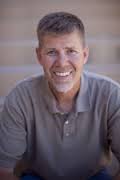 It’s been a while since our last “aha” moment, but I told you they’d be coming in now and then, and I’ll post them as they do.
It’s been a while since our last “aha” moment, but I told you they’d be coming in now and then, and I’ll post them as they do.
I don’t mind telling you, nothing I’ve ever posted here on Patheos has elicited as many private emails and Facebook messages as this series. There are a lot of you out there who are looking for company–others who have taken your same path and for many of the same reasons. You need to know you are not alone, and I am glad this series is giving you a virtual community of sorts.
Today’s “aha” moment is from Rob Dalrymple (PhD Westminster Theological Seminary), who has been pastoring and teaching for more than 25 years. He is currently pastoring Northminster Presbyterian Church in Bakersfield, Ca. You can learn more about him on his website and blog. He is the author of 2 books: Revelation and the Two Witnesses and Understanding Eschatology: Why It Matters
. His third book, These Brothers of Mine: A Biblical Theology of Land and Family and a Response to Christian Zionism, is due in early 2015.
********
I was a fundamentalist. A hard-core, fully convinced fundamentalist. Fill in the blank with whatever cliché you want and it’s likely true. I was a sincere follower of Christ all along. Many fundamentalists are. They are good people.
My problem was simple—well, it was actually very complex but it came down to glaring problem: without realizing it, I came to learn that I held to a worldview that had put God in a box. It was a strong box. I held it close to me and I loved this box. I was convinced that we knew everything we needed to know about God. I had a master’s degree in Apologetics to prove it. I felt I could answer any question. My Bible indeed told me so.
If you have never been a fundamentalist this may sound a bit over the top, but I assure you that I really believed that we absolutely had all the answers, or at least knew where to find them. I was truly convinced that what I thought was true, and therefore all of my conclusions were true. Others who held to different (i.e., false) conclusions simply didn’t have the right assumptions.
Then I went on to pursue a PhD in biblical interpretation. But before I left one of my mentors advised me: “don’t let them make you a liberal.”
That was a small moment for me, and it has stayed with me. I thought, really? That’s what I am supposed to worry about? It was as if he was alerting me that my convictions might not be as solid as I had always thought.
As I moved along in my studies my box seemed less agreeable and problems began to surface. My Bible was not acting the way it was supposed to, the way it had to.
The more I studied the more I realized that Jesus, Paul, and Moses thought like people of their time. That might seem like a no-brainer, but it wasn’t for me. It was a revelation. This meant that they didn’t hold to the same modernist assumptions that I held to and that were passed on to me in my fundamentalist upbringing.
I could see what my mentor was afraid of. Those “truths” began to come apart quickly, within one semester. This troubled me for some time.
I came to realize that my worldview was also a product of my era, and I was placing those expectations on the Bible. I knew what I believed and was convinced that it was true. But suddenly things weren’t fitting too well. Moses didn’t write Genesis to provide us details as to how God created the world. Moses wrote to an Israelite people who had come out of Egyptian slavery having worshipped the gods of Egypt for 400 years. Moses wasn’t answering modern scientific questions. He was answering ancient questions. Yahweh, and not the gods, is worthy of Israel worship.
One day, as I stood contemplating these matters, I had a true epiphany. This process had brought me to the clear realization that in my worldview I had been standing outside the box with God and the Bible inside it. But now I was beginning to come to terms with something too obvious to say: God wasn’t in a box. I was! God is the transcendent Creator. I am the finite, created being.
This hit me hard. But it was also unbelievably freeing! I was suddenly free from the fear of making it all fit. Free from the dogma that needed to make everyone else wrong. I realized that I was actually free from having to play the role of God. As a fundamentalist, I had actually made myself God. Now, I could be free to let God be God.
My faith in Christ and trust in the Bible are not weaker, but deeper and richer now that I have given up the reigns. Jesus Christ is Lord and we are not!
